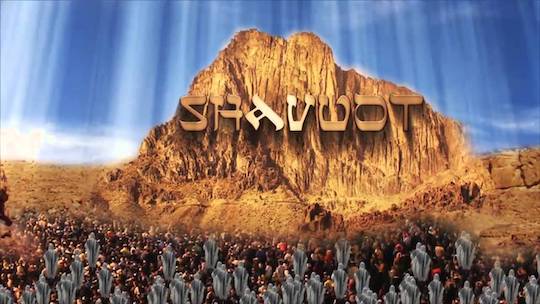“They made me do it.” Ah, the old refrain! Too often, we hear this phrase in the context of someone doing something wrong when they really did have a choice. To avoid accountability, we blame someone else; we claim coercion. What if, though, we claimed coercion in order to create future accountability?
Before applying this idea to our contemporary lives, let me share a rather remote example: Mt. Sinai. Last week, Jews celebrated receiving the Torah at Mt. Sinai during the holiday of Shavuot. We read about Moses going up the mountain; we read the Ten Utterances (more commonly known as the Ten Commandments); we told numerous stories associated with that moment some three thousand years ago. Stories matter, stories connect us and root us, they tell us who we are. Most versions of the stories about Mt. Sinai portray the meeting of God and the Jewish people as a moment in which the Jewish people said, “Yes, we will do it.” Sometimes, the story will note that God did not even get through the first five before the Jews said yes; sometimes, the story will note the thunder and lightning; and sometimes, the story will even turn the mountain into a wedding canopy.
There is a different version of the story in which the Jews are coerced. In the Talmud (Shabbat 88a), the rabbis interpret “the people stationed at the lowermost part of the mountain” (Exodus 19:17) as meaning the people were fully underneath it. “The Holy One, Blessed be God, overturned the mountain above like a tub, and said to them: ‘If you accept the Torah, it is better, and if not, there will be your graves.’” This story turns Mt. Sinai into a wedding of absolute asymmetric power between the bride, Israel, and the groom, God Almighty. Why?
One rabbi immediately poses the problem: this asymmetry is a “substantial caveat to the Torah.” In this telling, Jews would do well to follow Paul’s teaching to throw off the yoke of the Torah. If the commandments were forced on us, we really ought not to remain obligated to them. Except that the Jews not only remain obligated, they also double down on the obligation. The Talmudic passage concludes with another rabbi noting that Esther 9:27 indicates that the Jews (re-)established what they already received. In essence, the Jews said, “God made us do it. We are going to do it, and we are going to take it upon ourselves.” 1,500 years after Mt. Sinai, the rabbis tell the story in a way that gives us power. In the absence of thunder and lightning then (and today), Jews choose to say, “I do.” By recognizing the coercion then, we exercise extra freedom in being accountable now.
These days, we tend to complain about many of our obligations. You might wonder, as I do, whether we control our calendars or if our calendars control us. So many of our decisions are bound by the way things are. The rabbis of the Talmud invite us to focus on our free will to accept (or to defy) our circumstances. They tell stories to show us that we can tell stories, too. Years from now, will we still complain about today, will we recount the choices we made, or will we have written a dramatically different next chapter? We are accountable for the story we choose. We may even find hope in that choice, and that is the story I am going to tell.
About Rabbi Jeremy Winaker
Rabbi Jeremy Winaker is the executive director of the Greater Philadelphia Hillel Network, responsible for West Chester University, Haverford, Bryn Mawr, and other area colleges. He is the former head of school at the Albert Einstein Academy in Wilmington and was the senior Jewish educator at the Kristol Hillel Center at the University of Delaware for four years. Rabbi Winaker lives in Delaware with his wife and three children.


Comments